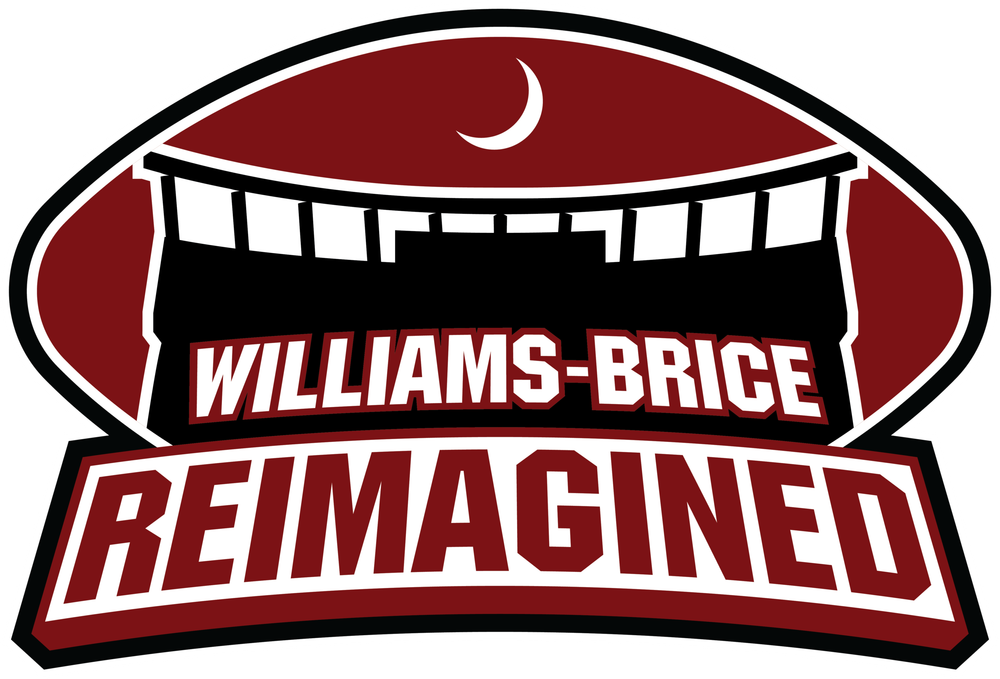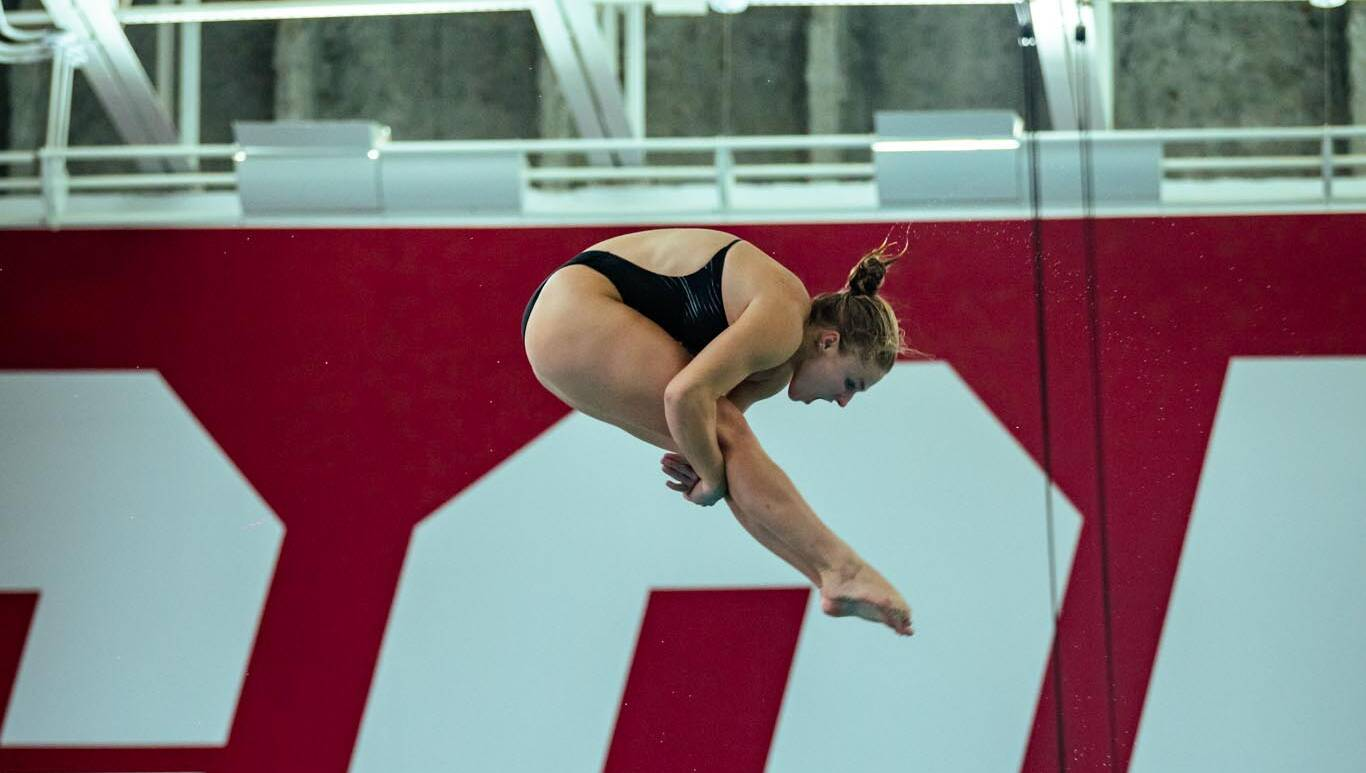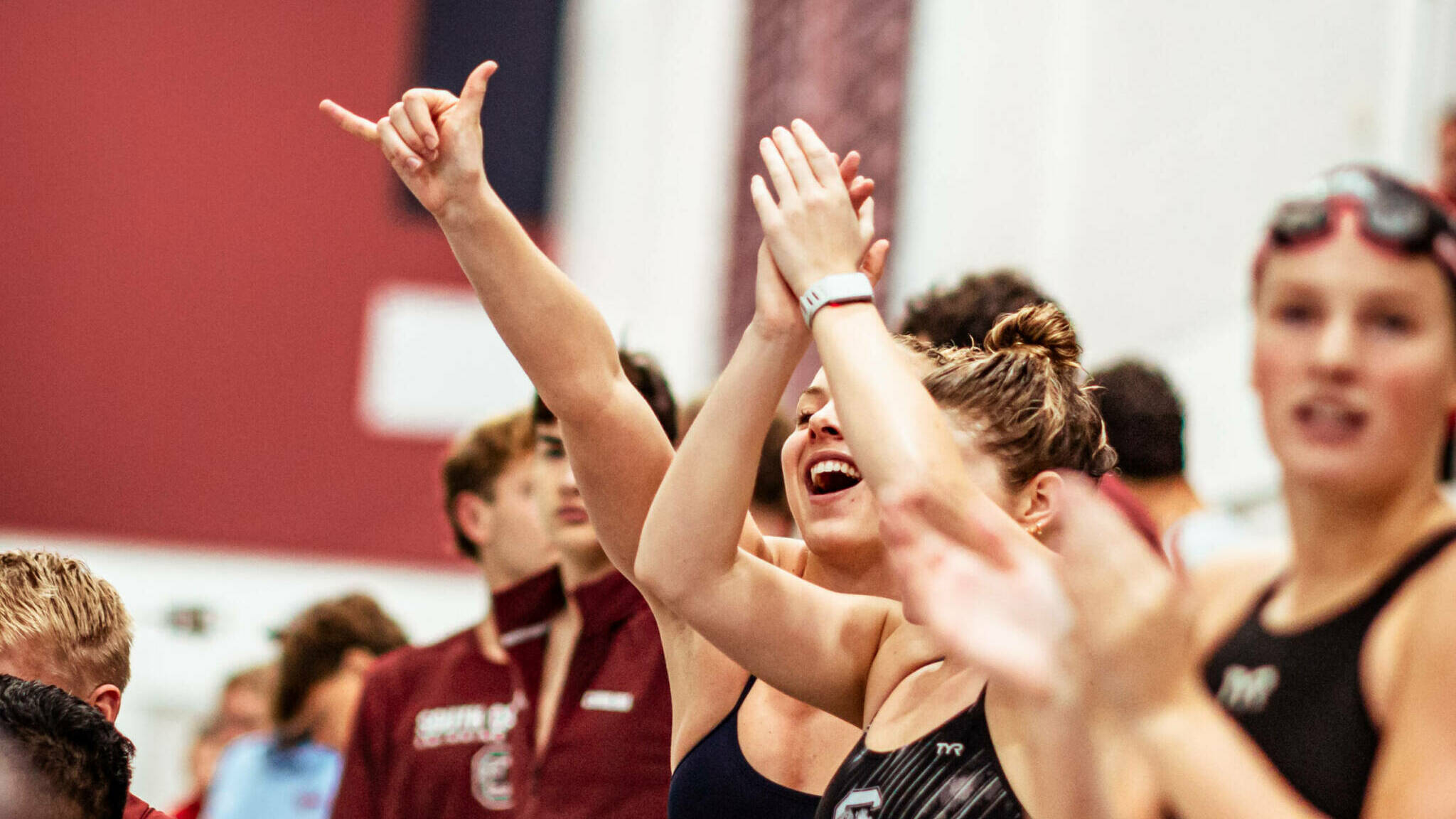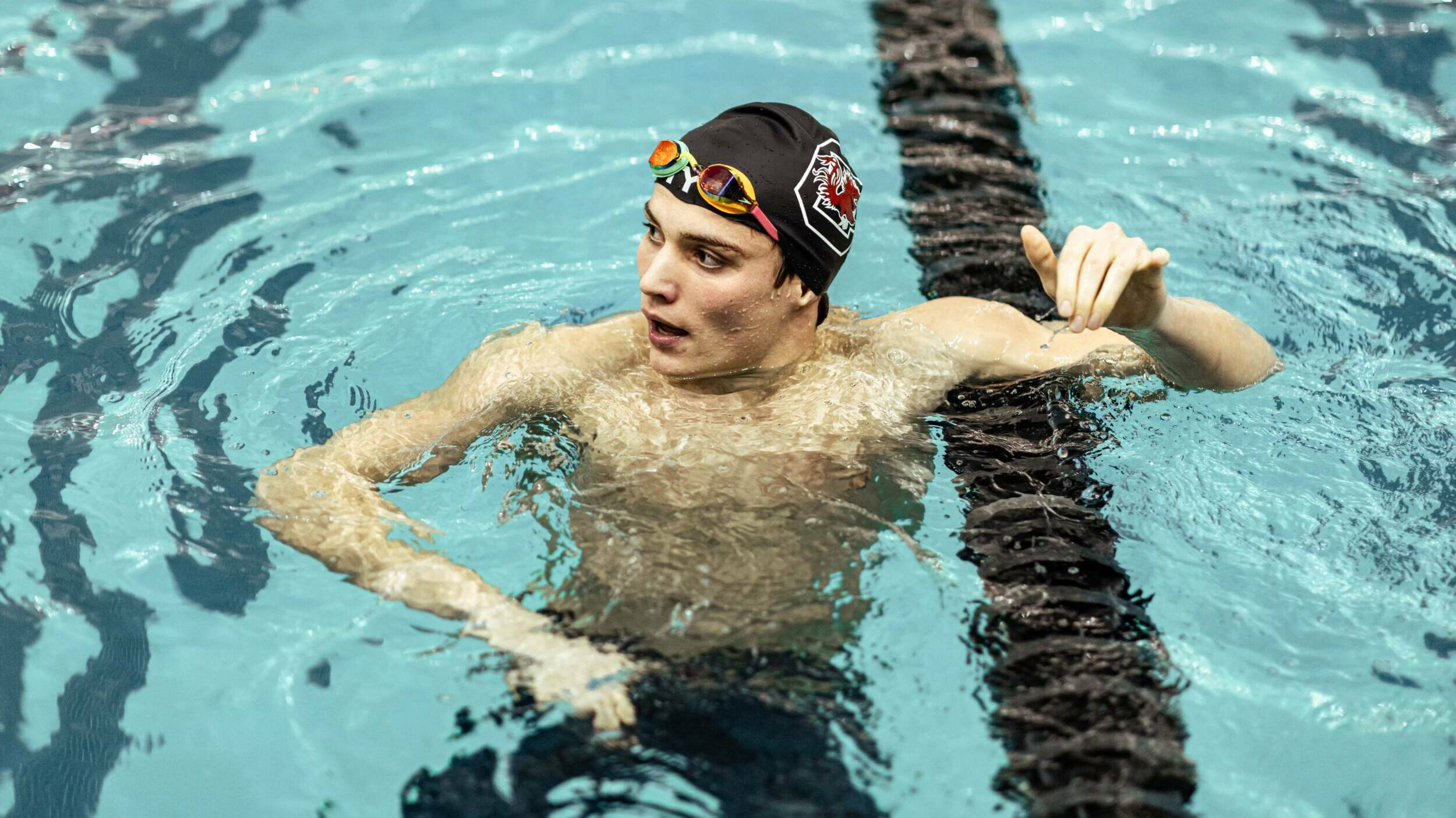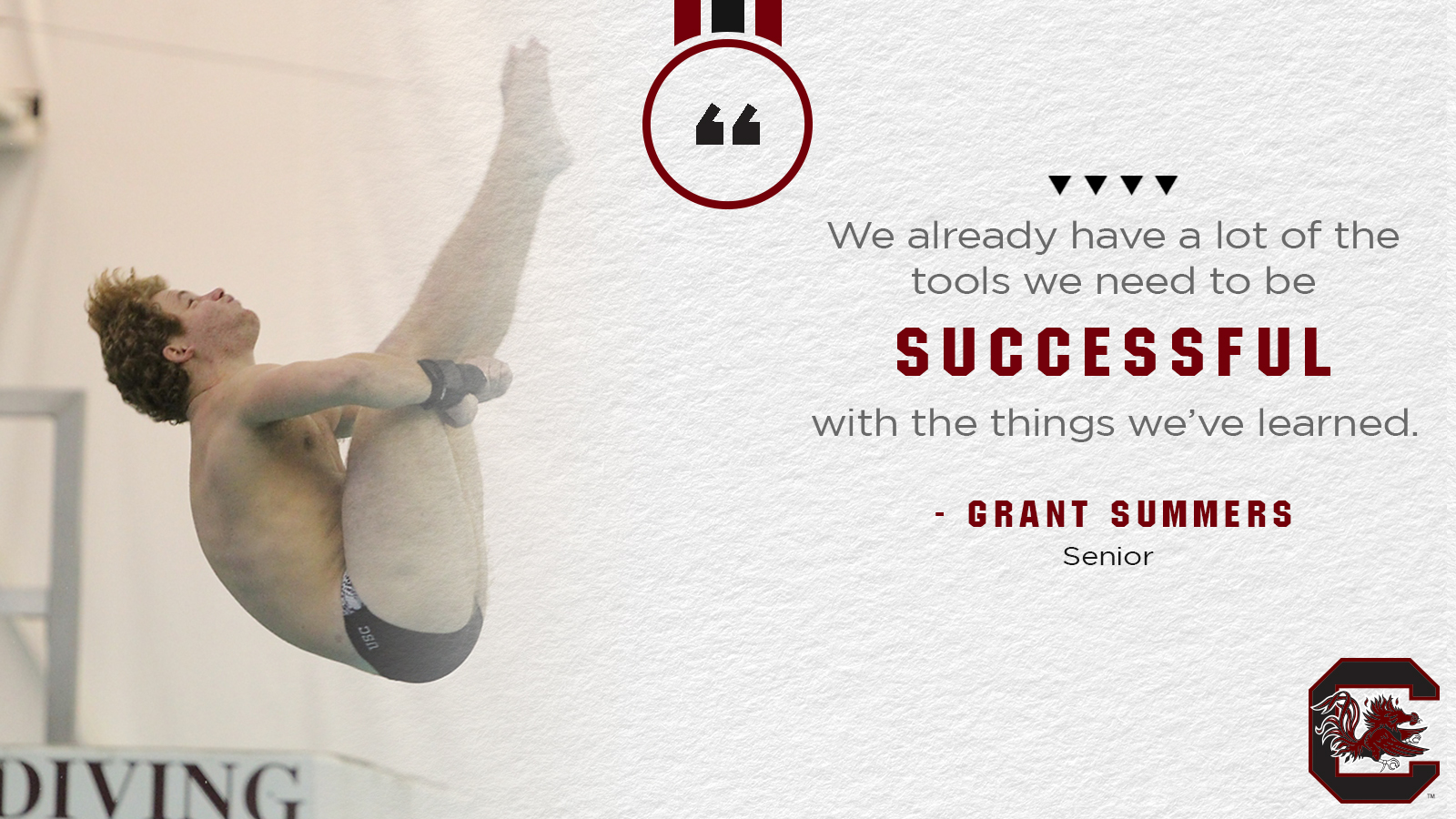
Gamecock CEO event focuses on taking care of the little things
When looking for work, take care of the little things and don’t make excuses. Those were some of the messages to South Carolina student-athletes from a trio of former Gamecocks in the latest Summer Huddle Series event hosted by Gamecock CEO. Gamecock CEO is South Carolina’s student-athlete development program.
“I learned a little bit more about how to conduct myself in a professional environment,” said Grant Summers, a rising senior diver, who is studying sport and entertainment management. “It’s definitely very comforting to hear it from former student-athletes. Hearing them talk about trying to find a job during the recession was very interesting because who knows what the job market is going to look like in a year, especially in the sports world, which is what I want to do. A lot of sports aren’t happening right now.”
“Experience is key,” said senior Eric Favors from track & field. “Student-athletes don’t always have time during the school year to get real job experience, but during the summer, going out and getting an internship to gain experience is big. You can earn all the degrees you want, but without real experience, it may not make a difference in the real world.”
When looking for a job or settling into a new job, the Gamecock alumni stressed the importance of making a good first impression.
“Send a handwritten note after an interview,” said former track athlete Mike Hedgecock (1987-91), who works as a director of a psychiatric unit at AnMed Health in Anderson, S.C. “That’s a dying breed. We’re so used to emailing and sending a text, it goes a long way for me. The other big piece is the way you look and present yourself in an interview. The first impression makes a huge impact on what you’re looking for. Even if you’re over-dressed, you’re probably better off.
“I’m looking for people with initiative; some get up and go. Someone who will do what they say they’re going to go. Be available and be a team player. Be on time.”
“Dress is a sign of respect,” said Bill Kittredge (1974-1976), who played football for the Gamecocks and is now a partner in a sales agency in the sporting goods industry. “Especially with young people, where the culture seems to be to dress so you’re comfortable. It’s not about your comfort zone. It’s about professionalism and integrity.
“It’s easy to dress better, look better, and be more organized than your competition.”
“It’s hard to go from the glamour of being a college athlete and into the business world.”
– John Hughes
The former Gamecocks also stressed the importance of being aggressive when looking for a job, and not allowing any setbacks to discourage them in their pursuits.
“Early on in my career, I was calling in favors,” said former football manager John Hughes (2005-2009), who worked in H.R. for several years and currently works for EuroKera in Fountain Inn, S.C., as a production manager over operations. “In 2009, the economy was not great. As I advanced, it has come full circle. Now I go out of my way to help out those people who reach out because I remember those people who helped me early on in my career.
“Do what you say you’re going to do. Be open to doing anything. It’s hard to go from the glamour of being a college athlete and into the business world. It can eat you up, but if you’re open, opportunities will present themselves.”
“My first job was at Wilson Sporting Goods. It was a great job, but It was difficult,” Kittredge said. “I thought I made a mistake at first. I was overwhelmed because there were so many products and so many customers. Luckily, Wilson had a great training program. The team support I got was primarily from the retailers I called on. I found that if you show a good effort and hard work, all they want to do is help you. I try to remember that every day with our sales team. Keep helping them and give them tools to succeed and people usually will come around.
“Don’t wait to start looking. Don’t use the COVID excuse for everything. Get dressed, look good, knock on the door or call someone on the phone instead of sending an email. No one ever won an argument in an email. You have to be aggressive and you have to go out there. Get face to face contact as much as you can. Don’t let standard societal excuses get into your vernacular. There is so much opportunity out there.”
“There is a lot of fear out there right now,” Hedgecock said. “With that fear, there is opportunity.”
The student-athletes were encouraged to continue their education now if that was in their future plans, but also get practical experience in their field before they graduate.
“(Coming out of school) I was overeducated but under-experienced,” Hughes said. “While you’re in school, find some way to get experience in your field any way you can, even if it’s on a volunteer basis. Find a way to get experience in that field while you’re being educated so you have something to point back to.”
For the current student-athletes, hearing the advice made them a little less anxious about the transition process after college.
“The thing that stood out the most was that we already have a lot of the tools we need to be successful with things we’ve learned when we were eight or nine,” Summers said. “Little things like saying, please and thank you, dressing sharp, and just having good manners; those are things people forget sometimes. In my eyes, that’s one of the most important things in life.”


